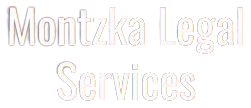Dealing With Probate
Many estate planning services focus on avoiding probate, and there may be good reasons for doing so. However, avoiding probate is not necessary for every case. Every situation will be different, and whether or not probate is the right way to transfer your assets and property to the next generation will largely depend on the size of your estate, your estate documents and your goals.
All of this underscores the importance of having your estate assessed by a skilled attorney. Montzka Legal Services offers such services to those with estate concerns in Chisago, Washington and Anoka counties. We also help personal representatives in fulfilling their duties in probate after the death of a relative or friend. In such situations, we seek to facilitate smooth transfers of assets and real property to the intended beneficiaries.
The Probate Process
Generally speaking, probate will be necessary if the estate includes real property (a home or land, for example) of any value, or if the decedent’s personal property exceeds $50,000 in value. Even in such cases, the process can move efficiently if a proper estate plan was put into place naming who inherits what.
Problems occur when estate documents are missing, contested or poorly executed, leading to confusion or disputes among beneficiaries, creditors or personal representatives. When this happens, we work diligently to resolve the issues promptly in the most cost-effective manner. Rarely do cases require civil action to resolve, but we are fully prepared to represent your interests — whether as a personal representative or a potential heir — should a trial become necessary.
Informal Vs. Formal Probate
Minnesota’s laws are generally considered to be consumer-friendly. In most cases, we can file an informal probate petition with the Probate Registrar’s office, which will appoint a personal representative for the estate if it approves the petition. Once the estate has been fully administered, the personal representative will file a statement and other documents to close the estate with the court.
Formal court proceedings are typically necessary if any of the following is true:
- There is disagreement among heirs.
- The will is missing or ambiguous, or its validity is contested.
- The estate is insolvent, meaning it owes more to creditors that it currently has in value.
- There are no known heirs or the estate names heirs who are minors.
- There is a medical assistance claim on the estate.
Our legal team has extensive experience handling all forms of estate administration, both formal and informal. We will gather all of the information needed, answer your questions promptly and guide you through the process from start to finish.
Contact Our Firm
For quality legal services focused on your needs, call our office in Wyoming, Minnesota, at 651-462-4200 to schedule an appointment with our experienced probate lawyer. You may also contact us by email.

